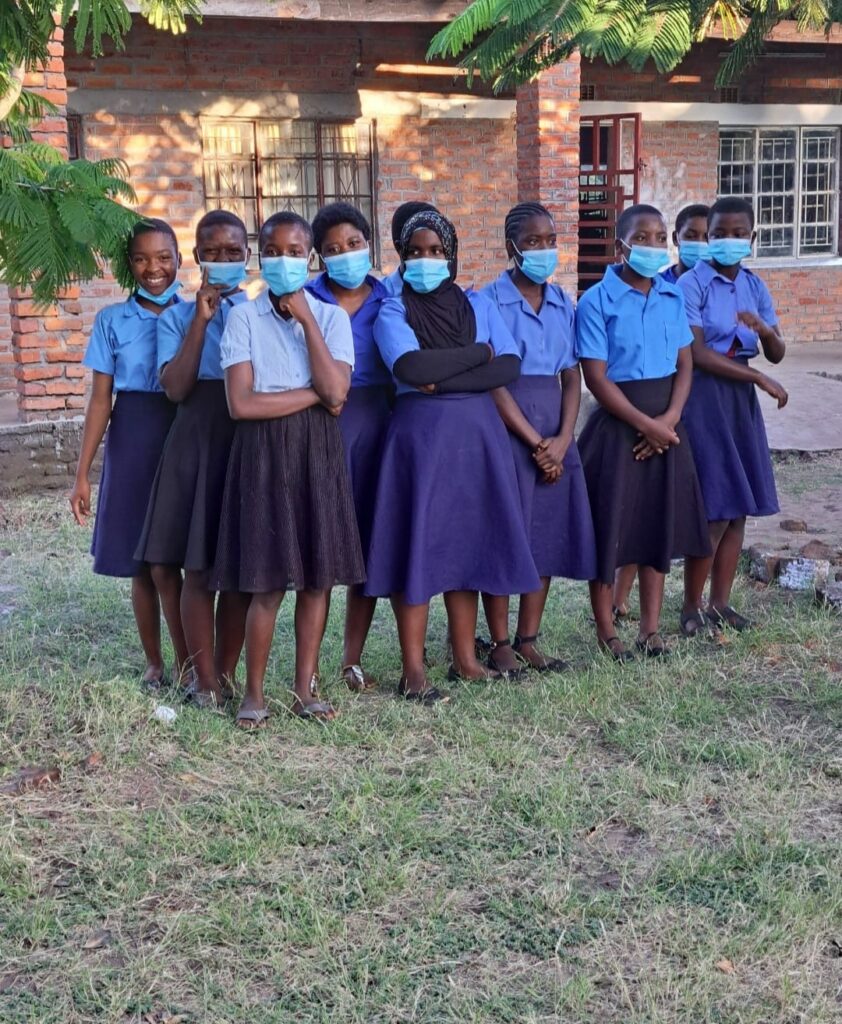FMSI is currently implementing the Project “Equity of access to quality education for girls and disadvantaged children in Malawi”, thanks to the support of one of its major Donors, Misean Cara. Malawi is characterized by a high rate of illiteracy and, due to inadequate schooling, the percentage of girls completing Primary School is around 50%, of these barely one third attend Secondary school and only one in five graduates. Girls’ education in Malawi is a huge challenge: the Country has one of the highest early marriage rates in the world – more than 40% of its girls marry before the age of 18, an event that very often results in them dropping out of school. Another aggravating factor can be seen in the recent pandemic, which has contributed to the enlargement of the phenomenon by causing a large number of girls to drop out of education. Girls’ empowerment clubs, if adequately supported by programs to facilitate the development of communication and psychosocial skills, are able not only to bring girls to school, but also to ensure that they have the opportunity to complete all levels of education, and to acquire the knowledge and skills necessary to measure themselves in the labor market. This would result in girls becoming aware of their abilities by increasing their self-awareness and confidence. The social-emotional skills and life experiences put in place would enable them to navigate knowing how to adapt to a changing world, make decisions about their own lives, and actively contribute to their communities and the world.
Aim of the project:
The long-term outcomes of the Project “Equity of Access to Quality Education for Girls and Children in Vulnerable Conditions in Malawi” are to improve the quality of education in 4 Marist and 3 non-Marist schools in Malawi and to ensure equal access to education in order to close the gender gap. To achieve these results, a series of activities will be implemented involving 7 schools, 2,974 students, 160 teachers, and various key stakeholders at the local and national levels. Key activities include: creation of 7 new girls’ empowerment clubs in each school, with active involvement of stakeholders; training of peer counselors; provision of support materials and programs; and psychosocial training aimed at communication skills enhancement, skills development to self-confidence. With a rights-centered approach, the project will seek to lobby the government of Malawi to make education a priority for all, without discrimination; in particular, it is intended to press government authorities through the Ministry of Education, Science and Technology. The project is consistent with three key priorities: education, health and human rights. By achieving the expected results, it will contribute to increasing access to quality education in Marist and non-Marist secondary schools in Malawi. To this end, activities will be implemented to produce measurable results that will overcome challenges and result in positive influence not only in schools but also in the areas where the project will take place.
At the beginning of May 2022, two FMSI staff members conducted a field visit to monitor the implementation of the activities. In addition to the project executive meetings, the team visited two of the seven schools involved and had the opportunity to interview students, teachers, parents, and principals. The interviews highlighted the students’ in-depth knowledge of the Project, the problems the children and families face, and all the ways the Project itself is contributing (and will contribute) to improving their education and lives. The FMSI team also had the opportunity to interview key Project stakeholders: the Salima District Commissioner’s Office, the Director of Education, Youth and Sports, and the Salima District Education Officer. The interviews revealed their appreciation and their willingness to actively contribute to Project implementation throughout the three years.
To date, the Project is achieving its goals; all team members involved, both in the FMSI Rome Office and in the field, are committed to ensuring that it continues well beyond its time frame.
THE PROJECT IN BRIEF:
The goal of the Project is to improve the quality of education in 4 Marist and 3 non-Marist schools in Malawi by ensuring the improvement of equal access to education, particularly for girls.
THE PROJECT IN NUMBERS:
- 4,105 children will have improved their ability to take health and safety measures
- 4,105 students will have improved their communication skills
- 4,105 students will benefit from ICT solutions
- 300 teachers and students trained
- 15 stakeholders involved in the Project
- 7 new girls empowerment clubs created
- 1,560 girls will benefit from the resilience, psycho-social training and skills development program
SDG Goals: 4 – 5 -16
Laudato Si’ Goals: 2 – 7


